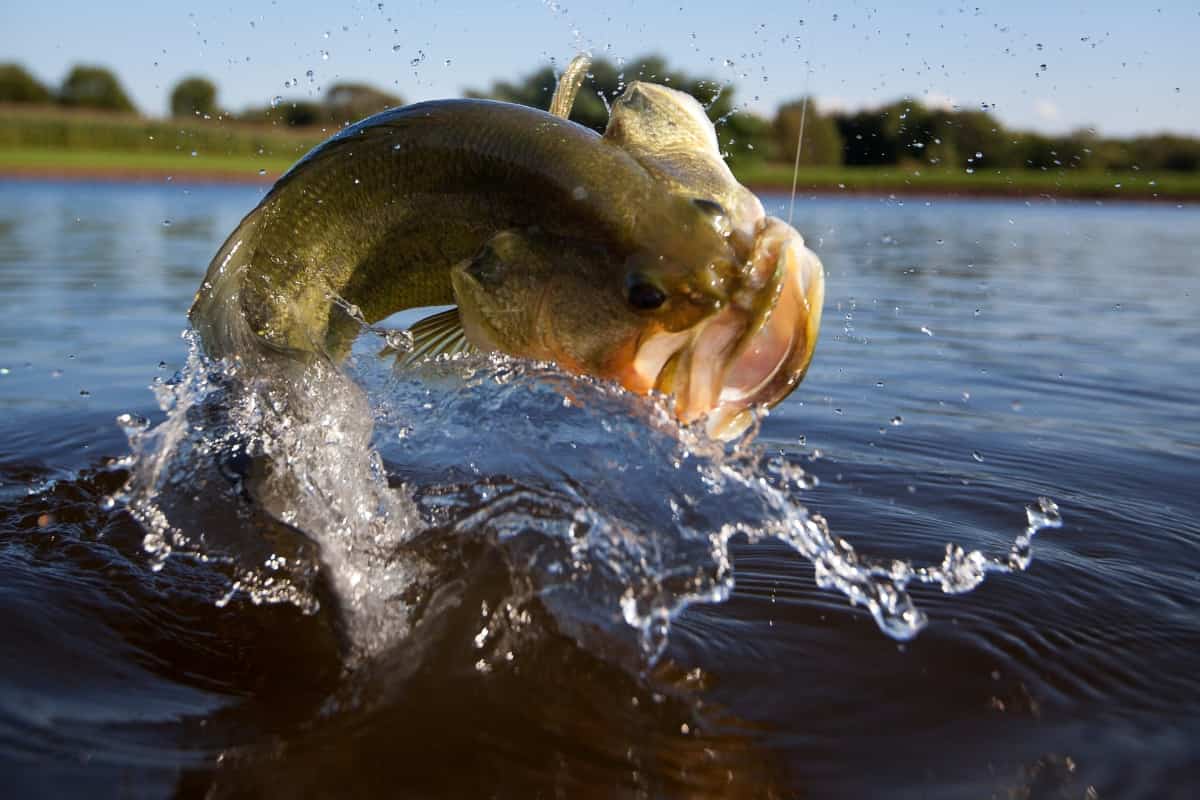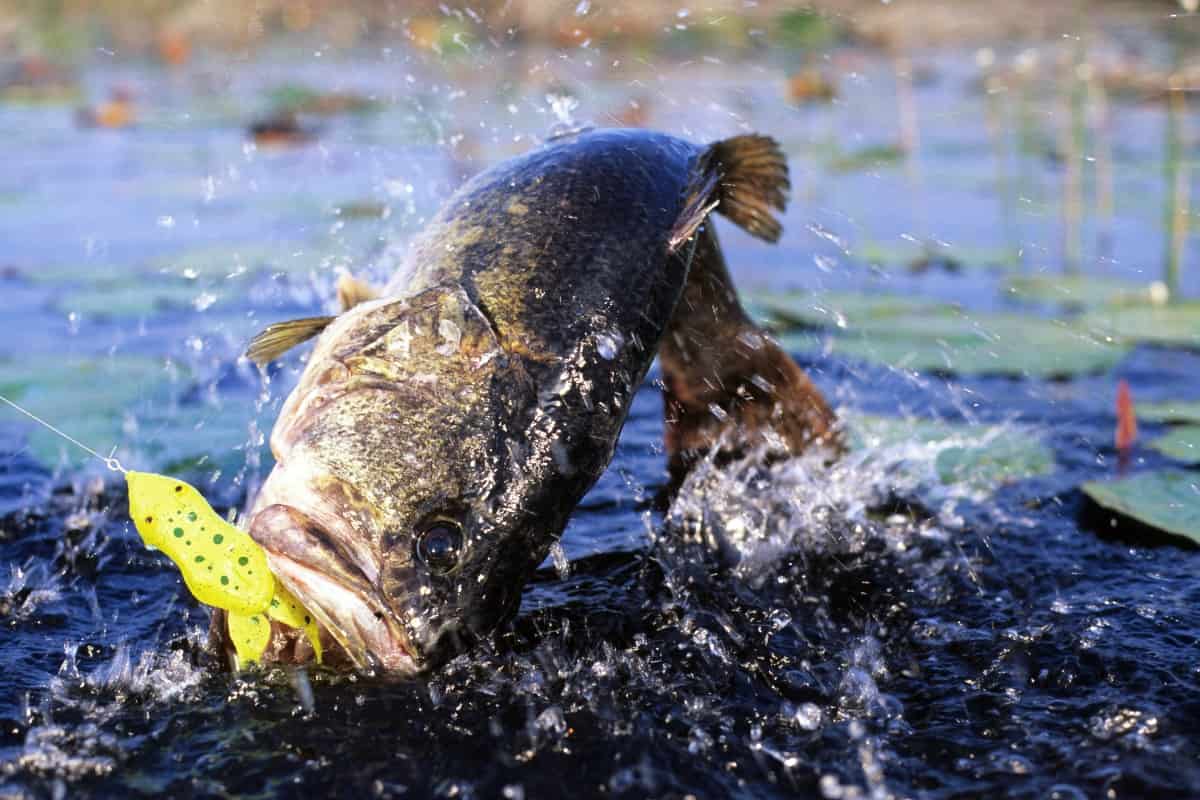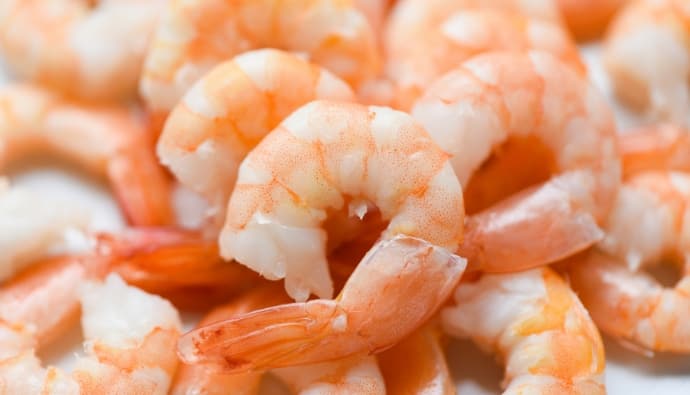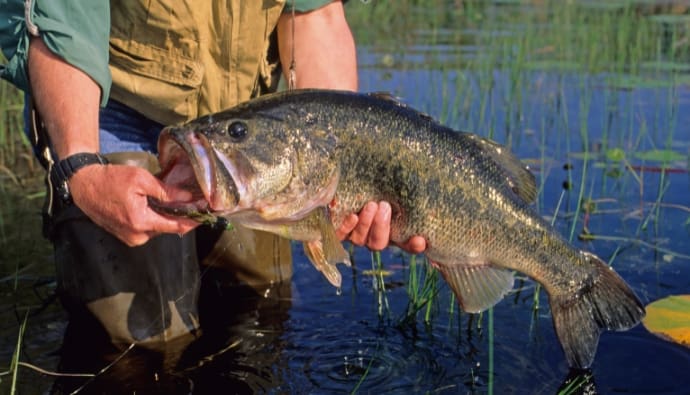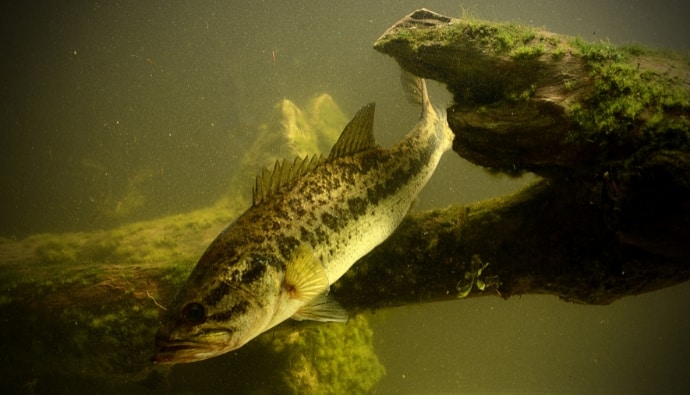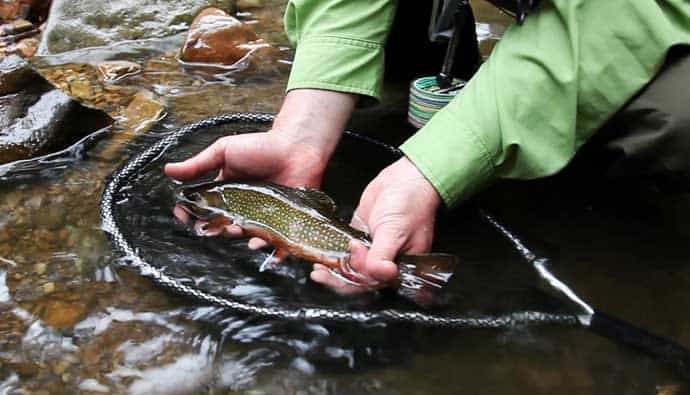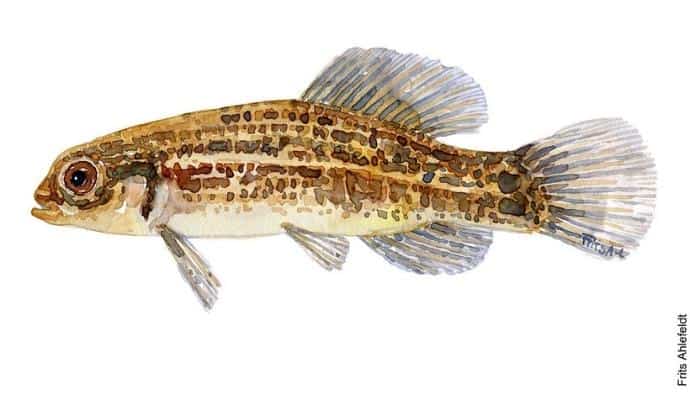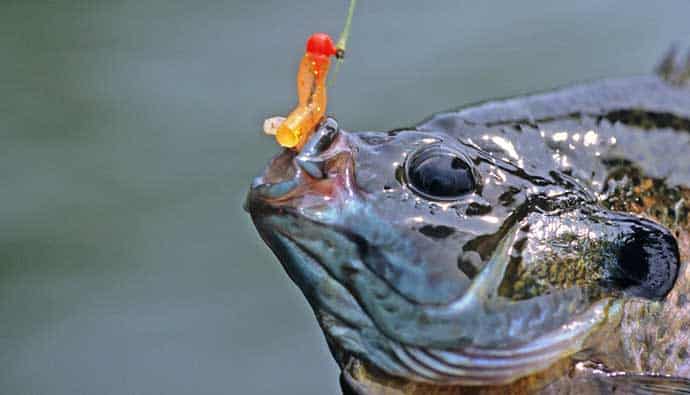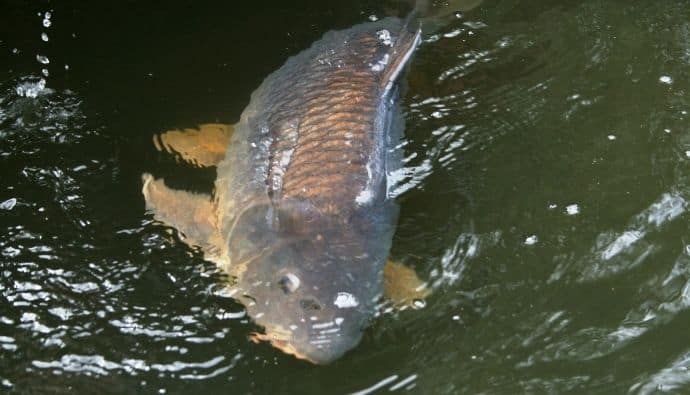The largemouth bass is one of the popular freshwater gamefish in the United States that millions of anglers enjoy fishing. However, despite how common bass fishing is, few people eat them. Thus, many people ask, are largemouth bass good to eat? Yes! You can. But many don’t eat this fish. Here’s why.
This article will elaborate on why many anglers prefer not to eat bass but rather catch and release largemouth bass back into the water.
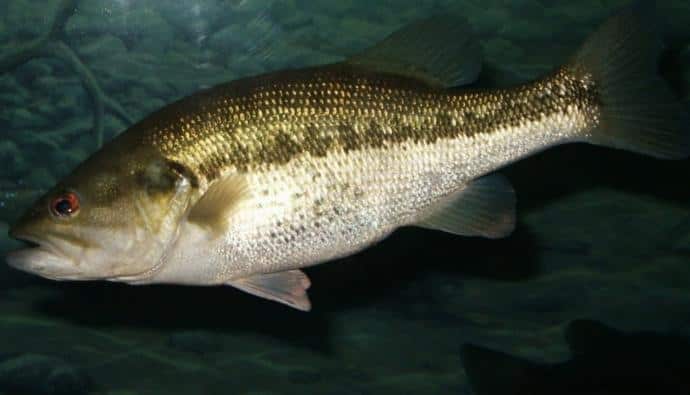
Reasons Why Some People Don’t Enjoy Eating Bass
Many bass anglers catch bass and hardly keep any to eat. The reasons vary from one individual to another, and it’s essential you know some of these factors before you decide to eat one.
Poor Flavor
One of the main reasons why many people don’t eat bass is because these fish don’t taste good though this is a personal issue. Bass’s flavor, like other freshwater fish, is strongly related to the water it inhabits.
You only need to smell the water to get a sense of how the fish you just caught will taste. Fish you catch when fishing in the clear, pure water is typically safe to consume. But you can be sure the fish will follow suit if the water is murky, sour, and smells terrible.
Most people dislike the muddy flavor of bass caught in stagnant ponds, rivers, or lakes. Generally, many anglers say that the bass are much more enjoyable to catch than eating them.
Fishing in rivers and streams rather than stagnant waters ensures you have the best chance of catching a bass fit for consumption. Even then, you should check the water to make sure it isn’t contaminated or muddy. When pond fishing, it’s frequently preferable to bring small bass home during the cold season before algae grow and alter the flavor.
Conservation
Most devoted bass fishermen employ the catch and release technique; they only hold the fish long enough to take a picture before releasing it back. That’s a good idea for people who are concerned about fish sustainability.
Because largemouth bass fishing is popular among fisherman, the fish populations could be in danger if everyone catches and consume them. As a result, committed bass fishermen release their catch into the water in order to maintain their favorite sport.
But that does not imply that you cannot eat largemouth bass. The ideal strategy is only to take a few small bass home and leave the big fish where you discovered them. This is because the larger fish have a bad taste and reproduce more frequently.
Cleaning Process
The smell that results from gutting the fish is unpleasant and much stronger than other fish of comparable size. Although you can get rid of the scent by washing and cooking it, many people prefer to stay away from it entirely.
Other Fish
Another reason people prefer eating largemouth bass is that there are other alternative fish species that are tastier. Fish like crappie, walleye, perch, and trout have far purer tastes. . Even those who like eating bass will acknowledge that there isn’t much about its flavor that sets it apart from these other choices.
How Does a Largemouth Bass Taste Like?
As mentioned earlier, the bass taste relies entirely on the waterways where they are found. Your fish will have a strong fishy flavor that is challenging to disguise with any preparation if you capture one in murky, muddy water.
But if you snag largemouth bass in clean water, they are likely to have cleaner and mild flavor. When properly prepared, they have white and tender meat, which turns flaky when fully cooked.
What Size Bass Should You Eat?
The bass’s size will significantly influence its flavor besides the water they live in. The ideal size to put on the dinner table is between 10 to 14 inches, typically not more than 15 inches.
Like other fish species, small bass have flavorful and tender meat, while big bass are tougher and build up more toxins with time. Besides, cooking the smaller ones is simpler. This is because a large fish’s center needs a longer time to cook than the outer portions.
How to Clean Largemouth Bass
Cleaning a largemouth bass is not easy; many individuals opt to pay someone to get the work done. But you can clean the bass using the following steps:
Cut the Bass
Make a shallow cut that runs from the fish’s tail fin base down to its lower mouth. It’s essential to avoid making deep cuts because if you puncture the internal organs, this could contaminate the meat.
Clean
Get into the cavity inside and take out all the internal organs. Use your finger’s tip to remove all viscera to make sure you have clean meat. Clean your fish with clean running water.
Descale
Begin descaling your fish after cleaning it. From fin to head, rub the sides of the fish with a dull knife or a big spoon. Repeat on both sides, and then finish washing the fish by rinsing it in cool water. At this stage, you can remove the head or not.
How to Cook Largemouth Bass
There are numerous ways of cooking largemouth bass. These include deep frying, pan frying, baking, and grilling. Baking is the easiest and tastiest method to cook largemouth bass, and it’s a terrific way to guarantee that you maintain the full flavor of the fish.
The entire process is simple, and all you need is some salt, aluminum foil, garlic, oil, pepper, and lemon juice. Lay out the aluminum foil, and then place your fish on it.
Add a little olive oil and liberally season with salt, garlic, pepper, and any other spices of your choice. After that, bake for 15-20 minutes at 450 degrees until the meat is juicy and flaky.
The fish can stew in its own juices, which is the most significant part of this procedure. This prevents drying and allows you to enjoy your catch’s natural flavor without adding too much seasoning.
Why Is it Necessary to Release Largemouth Bass?
When bass fishing, many fishermen adopt the catch and release practice instead of eating them. Those anglers believe that cooking and eating bass is a sacrilege.
Being the most popular game fish in the USA, largemouth bass have a lot of fishing pressure compared to all the fish species. If most anglers kill all the bass, they snag, this would negatively affect their populations.
If you love fresh fish, bringing a few smaller bass home is not an issue, but throwing the big ones back into the water is ideal. The large bass tastes far worse than the smaller ones, and most of them are female breeders who lay thousands of eggs each spawning season.
Additionally, bringing bass home is unnecessary since there are other tastier fish. Even anglers who love to eat bass will acknowledge that their taste is not unique.
Related Questions
Bass live for an extended period, and they can grow to enormous sizes. The typical bass has a lifespan of up to 20 years.
The smallmouth and largemouth bass are completely different fish, though many fishermen frequently confuse them because of how similar they appear.
You will find smallmouth bass close to the west coast, while largemouth bass typically inhabits the eastern United States and Canada. You can quickly identify smallmouth bass by looking at several characteristics. For instance, they have a smaller mouth, which does not go past their eye.
Conclusion
Can you eat largemouth bass? Eating largemouth bass is safe and healthy. When caught from clean water and prepared correctly with good bass recipes, the bass fish makes a wonderful dish.
Are largemouth bass fish good to eat? You should avoid bass from dirty and sluggish water as they are likely to taste bad.
On your next bass fishing trip, ensure you catch and release larger bass. If you love their taste, carry only a few smaller fish and toss the large ones back into the water.



 Facebook
Facebook YouTube
YouTube